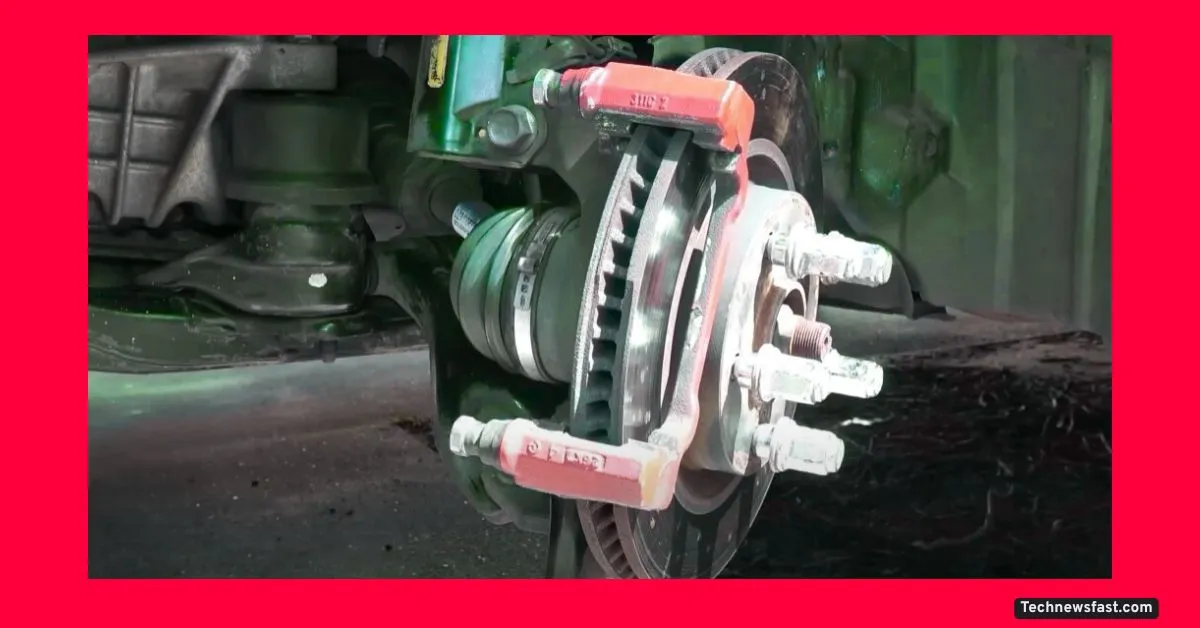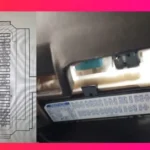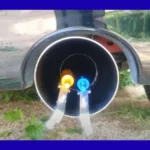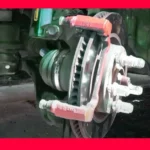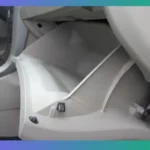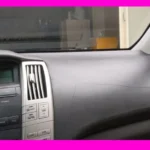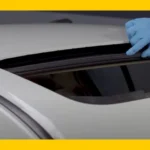If you hear squeaks or even grinding from your brakes, you’re not alone. Brake noise is common in cars, trucks, and even bikes, but it can drive you up the wall. Often, a little attention and some simple steps can make a big difference—sometimes, you can even stop brakes from squeaking without taking the tire off. In this complete guide, you’ll learn exactly why brakes get noisy and what you can do at home to make them quiet again.
Understanding Brake Noise: What’s Squeaking and What’s Grinding?
Before you dive into fixing things, it helps to know what all the ruckus really means.
Types of Brake Noise
Brake Squeaking:
Those high-pitched sounds you hear when pressing the pedal—or even sometimes just rolling down the street? That’s squeaking. It’s usually caused by vibration between your brake pads and the metal rotor.
Brake Grinding:
If the sound shifts from a whistle to a harsh scrape, you’re likely hearing metal-on-metal contact. This means your brake pads could be worn out completely, exposing the steel backing plate.
Your Brake System in Plain English
Here’s a quick look at brake parts in a typical car:
- Wheel hub: The center that connects your wheel and spins with it.
- Brake rotor (disc): Attached to the hub, spinning with your wheels.
- Caliper bracket: Holds everything in place (does not spin).
- Brake caliper: Clamps the pads onto the rotor when you press the pedal.
- Caliper piston: Uses hydraulic pressure to move the caliper.
- Brake pads: Friction material squeezed onto the rotor to slow the car.
These parts work together: step on the brake pedal, hydraulic pressure pushes the caliper piston, which clamps the pads onto the rotor, slowing your car with friction.
Why Noise Happens
Brake noise is mostly about vibration. Every time the pads touch the rotor, tiny vibrations happen. Some are quiet, while others echo loudly. When parts wear out, get dirty, or go dry, those vibrations get worse—and you hear squeaks or grinding.
The Top 5 Reasons Your Brakes Squeak (Or Grind)
Let’s break down why brakes get noisy and the steps you can use to quiet them down.
1. Worn-Out Brake Pads
Brake pads don’t last forever. Over time, the friction material gets thin, and once it hits about 2 millimeters, things get loud.
- Chamfers: Most new pads have beveled edges called chamfers. These help reduce squeaking by lowering the vibration frequency.
- Wear Indicators: Quality pads have steel clips that scrape the rotor when they’re thin, warning you before things get dangerous.
- New vs. Old Pads: New pads are thick (around 12 mm) and have chamfers and indicators. Old ones look thin, may have uneven edges, and can be missing features.
Some luxury cars use electronic wear sensors instead of steel clips.
Even if your brakes are squeaking but the pads are good, check the edges and look for wear indicators. Chamfers can wear down first, causing noise even when there’s still usable pad left.
2. Cheap or Low-Quality Brake Pads
Brake pads come in several types:
- Organic: Soft, quiet, best for daily driving.
- Semi-metallic: Good stopping power, can be noisier, and last longer.
- Ceramic: Long life, low dust, quiet, but usually pricier.
If your car came with ceramic pads and you swap in cheap non-ceramic ones, you might start hearing more squeaking. Quality pads also include anti-vibration shims—fibrous layers that prevent noise.
3. Worn or Damaged Brake Hardware
Every time you press the pedal, your brake pads move back and forth against steel clips, known as the hardware.
- Good hardware keeps the pad moving smoothly, reducing vibration.
- Worn hardware: Pads wobble, get stuck, and squeak or rattle.
Dirty or rusty hardware (from brake dust, moisture, or just age) can also make pads stick, causing a constant squeak even when you’re not pressing the pedal. When you replace brake pads, most quality brands include new hardware—and you should always swap it out.
4. Lack of Lubrication on Guide Pins and Hardware
The caliper slides on guide pins, letting it squeeze the pads against the rotor evenly. If those pins dry out or the rubber boots crack, dirt gets in, and the caliper can seize up.
- Lubricate Guide Pins: Always use high-temperature, brake-specific lubricant—not regular grease. This prevents sticking and silent wear.
- Why It Matters: If the caliper sticks, the pad will drag on the rotor, causing non-stop noise and extra wear.
- Bonus: Some quality pads ship with bolts pre-applied with thread locker, so they won’t come loose while driving.
5. Worn or Damaged Brake Rotors
Rotors wear down right along with your pads.
- Grooves and Ridges: Old or cheap pads carve grooves into the rotor. When a new pad grabs onto these, the uneven surface vibrates and squeaks.
- Off-Road Use: Sand, dirt, and rocks can also scratch rotors or even bend dust covers, causing constant rubbing and noise.
- Rust: Cast iron rotors rust, especially if you don’t drive often. Rust buildup can mean the pads need to wear down the rough layer before things quiet down.
Special Considerations: Disc Brakes, Drum Brakes, and Emergency Brakes
Most cars use disc brakes on the front and often on the rear too. Everything above applies here: pads, rotors, hardware, and lubrication. For new brakes that squeak when stopping slowly, double-check all these points.
Drum Brakes (Still on Many Rear Wheels)
Older models and some newer vehicles use drum brakes in the rear.
- Drum Brakes Use: Instead of pads, you get brake shoes. Instead of a rotor, there’s a drum. A wheel cylinder pushes the shoes outward against the drum when you hit the brakes.
- Drum Brake Noise: The causes are almost the same: worn shoes, poor-quality parts, old hardware, lack of lubrication, glazed drums (where the surface gets hard and shiny), or a buildup of brake dust inside.
- Drum Cleaning: Since drum brakes are enclosed, dust builds up inside, making noise. Use brake cleaner designed for the job—never regular degreaser or oil.
Emergency Brake System
Your handbrake, footbrake, or electronic parking brake often uses a mechanical system in the rear wheels—even if you have rear disc brakes. Rescue “hidden” drum brakes within the rotor hub.
Check that nothing’s worn, out of place, or rubbing. Emergency brake issues can cause noise, especially after the car sits a while.
Brake Grinding: The Sound You Can’t Ignore
Brake grinding is the most serious warning your car gives you.
- What It Sounds Like: A loud, scraping, metal-on-metal sound when you stop.
- Why It Happens: Pads are so thin they’ve worn away completely, and you’re pressing the metal backing plate into the rotor.
- What to Watch For: The inside (inboard) pad nearest the caliper piston tends to wear out first. Always put the wear indicator (clip or sensor) on this side when you install new pads.
- What to Do: If you let the system grind for too long, even new pads will rub against the ridges on the rotor—meaning more noise and lost braking power. Sand any ridged rotors before new pad installation, or replace them altogether.
Practical Tips for Keeping Brakes Quiet
Noise-free brakes last longer and make driving nicer. Here’s what you can do:
- Inspect Brake Pads and Rotors Often: Don’t wait for noise to check.
- Use the Right Parts: Cheap pads save money up front but may cost you in replacement and noise.
- Swap Out Old Hardware: Always use fresh clips and shims when fitting new pads.
- Lubricate Everything: Guide pins, pad contact points, and the backside of brake hardware—always use the right grease.
- Clean Brakes Regularly: Especially with drum brakes, a little cleaning prevents a lot of squeaking.
- Don’t Forget the Emergency Brake: Give it a quick check whenever you service the main brakes.
Why Are My Brakes Squealing with New Brakes? (And Other Common Questions)
- New Brakes Squeak When Stopping Slowly: This often means the rotors weren’t cleaned or sanded, the pad edges weren’t chamfered, or hardware wasn’t replaced or lubricated.
- Brakes Squeak When I First Start Driving: Overnight moisture, light surface rust, or dust buildup can cause noises that go away after a few stops.
- How to Stop Brakes from Squeaking Without Taking the Tire Off: Try applying dedicated squeaky brakes spray to the back of the brake caliper (not the friction surface), carefully reaching between wheel spokes. Use only products made for brakes, and always follow package instructions. If the problem keeps coming back, a proper inspection is still key—sometimes, there’s no shortcut.
Conclusion
If your brakes are squeaking, grinding, or just don’t sound right, you don’t have to panic or head straight to the shop. Many common causes are easy to spot and fix at home: worn pads, old hardware, stuck calipers, or rusty rotors. Keep up with regular checks and use quality parts—your ears, and your car, will thank you.
